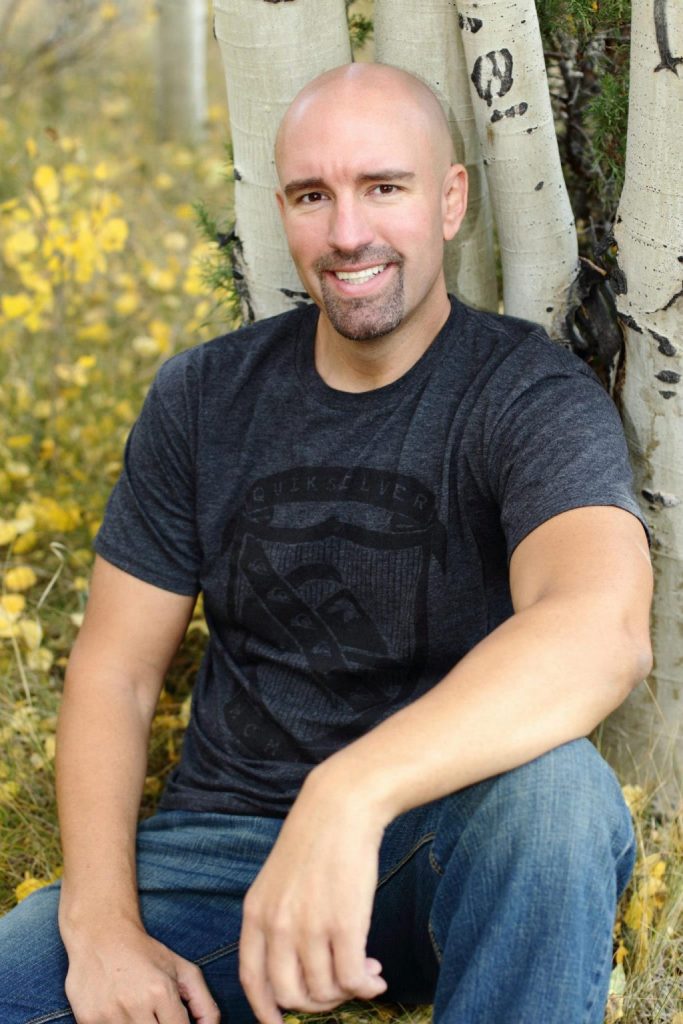“We create the world around us in our own minds”
Most people wouldn’t find anything in common with the two words “photography” and “neuroscience”. However Biology professor Tyson Chappell believes they connect through the beauty of both nature and science.
Chappell was raised in Loa, Utah and graduated early from high school. “There was nothing to do besides get in trouble or study so I studied. I didn’t want to just play and mess around with my life so I got my credits finished.” Chappell explained.

This archived article was written by: Ashley Stilson
Most people wouldn’t find anything in common with the two words “photography” and “neuroscience”. However Biology professor Tyson Chappell believes they connect through the beauty of both nature and science.
Chappell was raised in Loa, Utah and graduated early from high school. “There was nothing to do besides get in trouble or study so I studied. I didn’t want to just play and mess around with my life so I got my credits finished.” Chappell explained.
He went to Snow college and then to Weber State where he took psychology classes. He realized he wasn’t interested in the theories of personality. “I found out that I loved something about the brain but I didn’t know what it was yet. I took a neuroscience class and I fell in love with the brain. So I knew I needed to go into neuroscience when I graduated.” He graduated from Weber State and went to study neuroscience in a graduate school in Memphis, Tennessee. He, his wife and his children—ages 10, 8, and twin 6 year olds—then moved back to Utah to be closer to family.
“As soon as I fell in love with the brain I knew I needed to continue my studies with the brain. It always sounded like fun to be able to teach.” With teaching, Chappell said, “The more you learn, the more you understand that you don’t know very much.”
His favorite topic to teach is anything to do with the brain. All three of his classes have a brain section where he loves to analyze and critically think about how the brain forms our reality. “I knew I liked psychology for the hard science of the brain and how the brain functions. Hearing about chemicals and electricity in the brain…how that produced our reality and our perception about everything we know is just fascinating.”
“When I first realized in psychology [classes] that it’s not just [about] the theories of personality but there were actual real chemicals that motivate us to do things…that was way more fascinating than just the philosophy.” Chappell comments that discovering what drives us towards good or evil was one of the main motivations for studying neuroscience. “We are electrochemical machines and we’re driven by those chemicals and by electrical impulses to do things we do. That was just immensely fascinating to know that by tweaking these chemicals you could alter the reality of a person…What we think of the world is in many regards our perception. We create the world around us in our own mind. What do you want your life to be? You create it.”
Neuroscience isn’t the only interest in Chappell’s life. He also dabbles in photography. “When my daughter was born, that’s when I bought my first digital camera,” Chappell begins. “I started to just take pictures of her and I realized that I really enjoyed that. I just kept moving up with different camera bodies and more advanced photography and learned it on my own just by shooting.”
Chappell enjoys taking pictures of the activities on the USU Eastern campus. “I like our USU Eastern games…I have a nice camera and lens that is able to capture some really great action shots.” He also does family shots and weddings. Sometimes pictures don’t turn out as well as hoped for. “I just erase those,” Chappell grins. When editing pictures, he says, “You can create pictures more than just taking them. You can make something new and beautiful…to increase the emotion and power of it.”
His best shot, he admits, is probably a picture of multiple lightning strikes over the Price fairgrounds. He has a variety of pictures, from a bug-eye shot of a dragonfly to angel tombstones to star trails at Capitol Reef. “Photography allows me to step outside the normal science background of studying. It’s relaxing and allows me to look at nature in a different way…and see it for the beauty that it is.”
The advice Chappell would give to aspiring photographers would be this: “It’s easy to improve with digital photography. You have the immediate feedback of the shot…just learn your camera’s functions, go over the instruction booklet so you can make adjustments quickly. Take it out of auto everything mode. I usually just adjust everything myself.”
Even if money was no object, Chappell would still want to be working. “Working helps give us meaning. It keeps us focused and motivated. To win the lottery would probably be kind of a hassle…It’s nice to be able to earn a living.”
Finally Chappell believes that: “Whether I’m studying biology, neuroscience, or photography, they all relate to me, they are all similar. They are all methods by which we can see the details in nature…The grandeur of this life, of all life, it is all so immense, vast, and breath-taking. I hope in some way that I can help my students see the beauty outside and inside themselves.”




